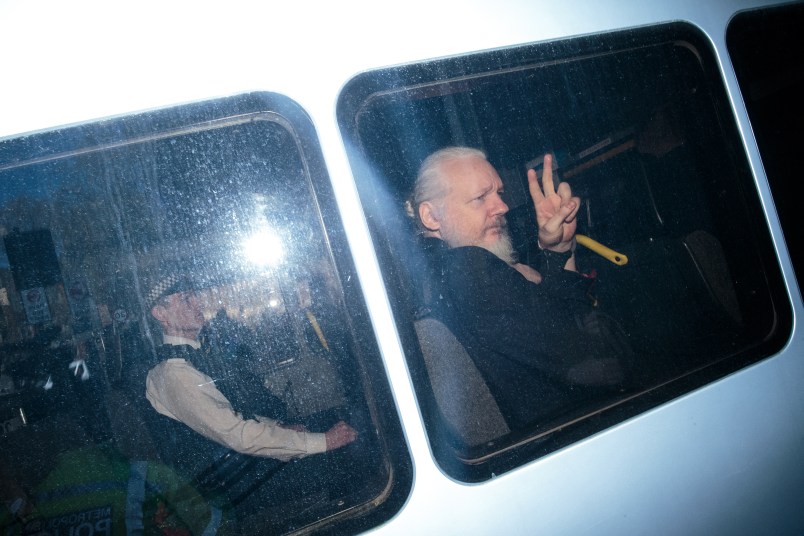The government does not know if an alleged hacking conspiracy between Wikileaks founder Julian Assange and Army intelligence officer Chelsea Manning succeeded, according to a newly released December 2017 affidavit from an FBI agent on the case.
“While it remains unknown whether Manning and Assange were successful in cracking the password, a follow-up message from Assange to Manning on March 10, 2010, reflects that Assange was actively trying to crack the password pursuant to their agreement,” reads the affidavit, filed by special agent Megan Brown.
Assange was arrested in London last week on a U.S. extradition request, based on a March 2018 indictment accusing him of trying to help Manning “crack” a Defense Department password.
Brown writes in the newly unsealed affidavit that she was assigned to the FBI’s counterespionage squad in the Washington D.C. field office in February 2017. She then goes into a detailed list of allegations surrounding information that Manning supposedly shared with Assange, before proceeding to the alleged password-cracking conspiracy.
Prosecutors allege that the password-cracking attempt occurred in March 2010. If successful, prosecutors say, cracking the password would have given Manning access to a wider range of potentially classified information.
The key point in the alleged conspiracy is an instance in which Manning allegedly gave Assange part of a hash, a way to conceal a password using an algorithm. By giving the hash value, Manning could have allowed Assange to decode a U.S. government password.
“Manning would have needed the part of the hash from the system file as well to obtain the full value,” the affidavit reads.
On March 10, texts attached to the affidavit show, Assange allegedly messaged Manning asking for “any more hints” about the hash, adding “no luck so far.”
The next messages appear six days later, per an exhibit attached to the affidavit.
“Investigators have not recovered a response by Manning to Assange’s question, and there is no other evidence as to what Assange did, if anything, with respect to the password,” the affidavit reads. “The next chats that investigators were able to recover were dated March 16, 2010.”
“Nevertheless, the recovered chats described above reflect an agreement between Manning and Assange to crack the hash,” the FBI agent adds.










